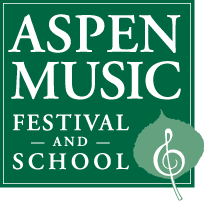« Hang on, Norman | Main | Word without thoughts never to heaven go »
July 19, 2005
Different Worlds
The musical and music-critical world I inhabit appears to be a different one from Norman Lebrecht's. I have spent the past four evenings at the BBC Proms in London's largest concert venue, the Royal Albert Hall (capacity circa 5,000) and three out of the four programmes have been almost literally packed to the rafters with music-lovers of all ages. The Proms are, of course, a British institution, uniquely informal and accessible to people with limited incomes, but I see no diminution of the enthusiasm of music-lovers for great music than when I first attended the Proms as a student 30 years ago.Sure the challenges for performers, audiences and critics have changed over the years, especially with the decline of the multi-national classical record companies (although, I have to say, as a weekly record critic, I am inundated with new and interesting discs from companies big and small and often have great difficulty whittling down my choice of discs for review to eight per month - if this is a crisis, I'm glad I wasn't around in the so-called heydays of the record industry). Friends who visit my apartment call me the King Cnut of CDs, unable to stem the tide of new releases and collectible re-issues that inundates my listening room.
As for Norman's implicit suggestion that music critics should get out more, well I am out virtually every night desperately trying to survey as much of the music scene as I can, but also taking in plays, ballet, films even the odd exhibition, about which I don't write. His suggestion that music critics should attend editorial conferences at their respective newspapers would not be welcome at the Sunday Times where the overall editor has far too many sections and issues to worry about to be concerned with the activities of the classical music critic. Yes, classical music has slipped down the list of editorial priorities, but that could just be the fault of the professional doom-mongers such as Norman who has been predicting the demise of classical music for as long as I have known him. Editors don't have time to attend three consecutive sell-out concerts at the Proms, but unfortunately they do seem to have registered Norman's never-ending mantra of Armageddon.
If the space devoted to classical music has declined, that's not the fault of the critics - when I started to write for London newspapers 20 years ago, the coverage of popular culture was negligeable and so-called world-music non-existent. When I joined The Sunday Times 16 years ago, there were four classical music critics plus Norman himself writing music news stories. Now we are two, but that's still one more than the three other Sunday broadsheet newspapers published from London.
Norman is absolutely right, however, about the multiplicity of outlets enabling far more of a critical debate than is possible in most US cities, indeed several UK broadsheets have columns and tablets in which the range of critical response is surveyed: the Daily Telegraph's Culture Vulture - flapping its wings in glee, standing nonchalantly upright, or lying dead - is the wittiest. Often the views are diametrically opposed but that is healthy and my guess is that London critics reflect the spectrum public opinion, if not necessarily proportionately.
Finally, I agree with Fiona that critics should be able to read a score. Ideally, we would all be "experts" on all of classical music, but now that the repertoire extends from Hildegard of Bingen to Sir Harrison Birtwistle no-one surely can expect in-depth knowledge of everything. I'm lucky in that the enthusiasms of my colleague, Paul Driver, complement my own and we try to cover the gamut of classical music with as much enthusiasm as we can muster. Sometimes it's hard, but we try.
Posted by hcanning at July 19, 2005 04:08 AM
COMMENTS
Post a comment
Tell A Friend

 AJ blog partner
AJ blog partner